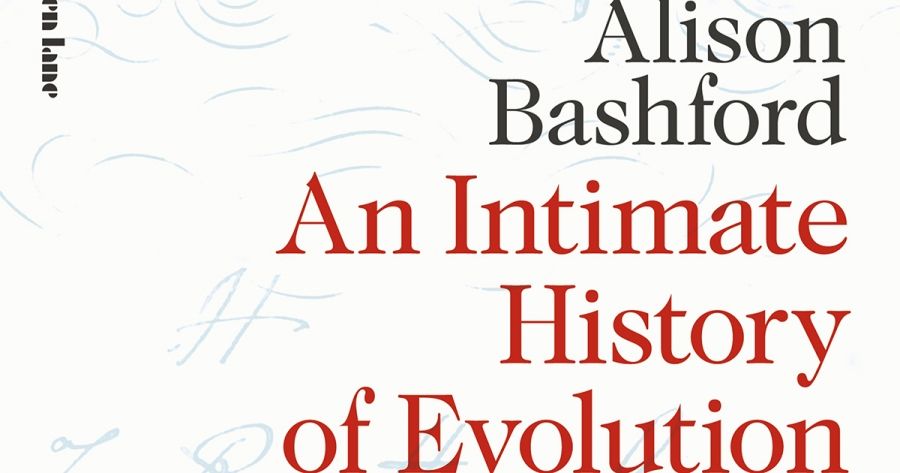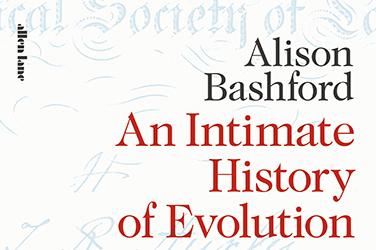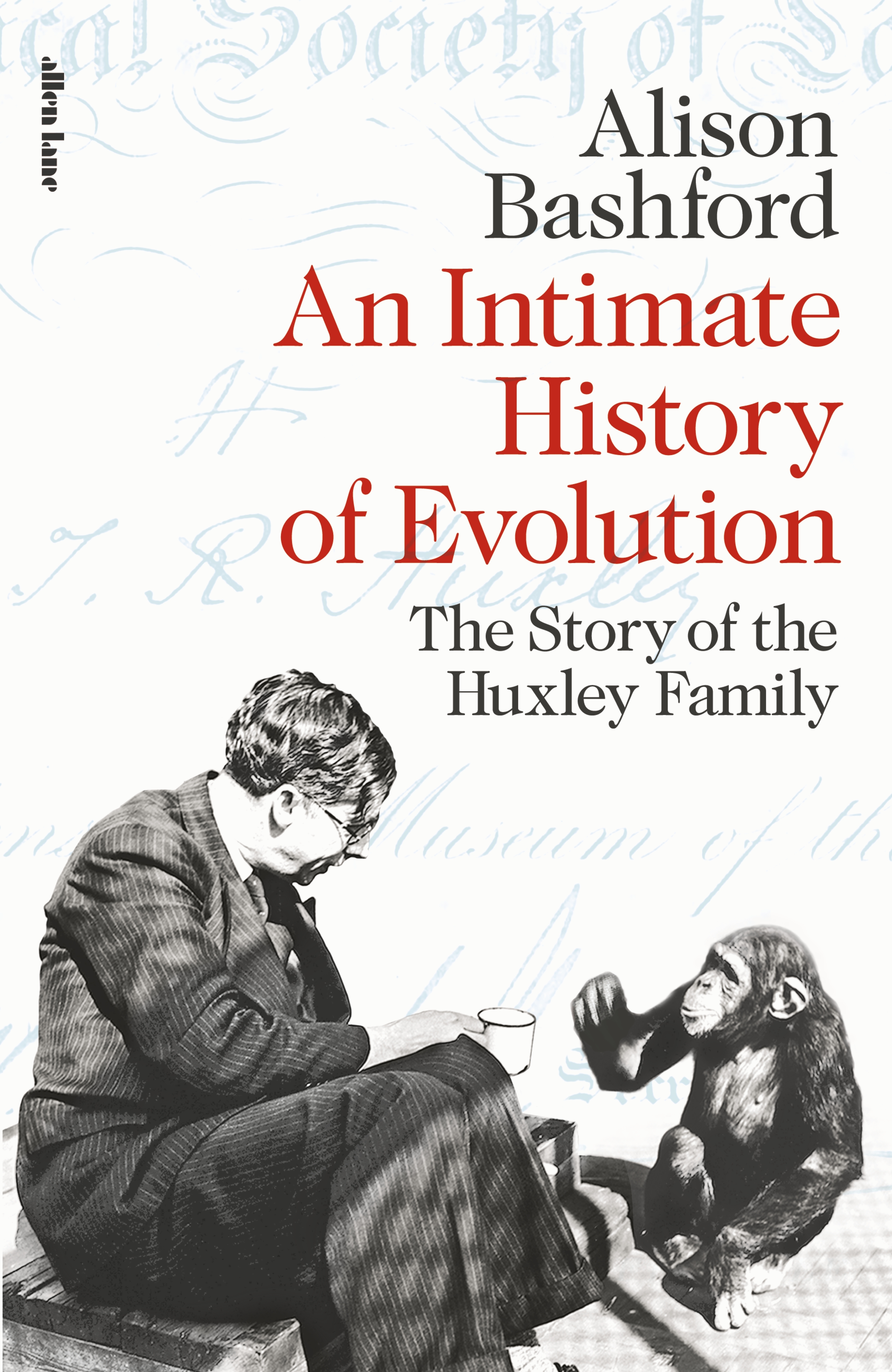
- Free Article: No
- Contents Category: History
- Review Article: Yes
- Article Title: The evolving Huxleys
- Article Subtitle: Alison Bashford’s triumphant family history
- Online Only: No
- Custom Highlight Text:
Fifty years ago (when I was a very young scholar), I was asked to write an essay review of some recently published books about the Huxleys. None of them in my view, including Julian Huxley’s own volume of Memories (1970), did justice to their subjects’ scientific achievements and social concerns. Half a century later we now have Alison Bashford’s An Intimate History of Evolution: The story of the Huxley family. It has most definitely been worth the wait. Indeed this work is the crowning achievement of her distinguished career.
- Featured Image (400px * 250px):

- Alt Tag (Featured Image): Gary Werskey reviews 'An Intimate History of Evolution: The story of the Huxley family' by Alison Bashford
- Book 1 Title: An Intimate History of Evolution
- Book 1 Subtitle: The story of the Huxley family
- Book 1 Biblio: Allen Lane, $59.99 hb, 576 pp
- Book 1 Cover Small (400 x 600):

- Book 1 Cover (800 x 1200):

Part I (‘Genealogies’) focuses on ‘the story of the Huxleys’, tracing the social, intellectual, and psychological inheritances which shaped their dynasty, beginning with its founding father, THH. Despite his impoverished childhood and limited formal education, he managed through a combination of raw talent, hard work, and good fortune to become one of the Victorian era’s leading scientists and – as ‘Darwin’s bulldog’– the most influential champion of evolutionary theory. His family’s entry into what Noel Annan famously dubbed Britain’s ‘intellectual aristocracy’ was assured through the marriage of his son Leonard to Julia Arnold, a close relation of the writers Matthew Arnold and Mrs Humphry Ward. Leonard and Julia’s sons, Aldous and Julian (JSH), were the beneficiaries of these alliances, which gained them entrées into Eton, Oxford, and Bloomsbury. It was JSH who, as a biologist and scientific communicator, then took up his grandfather’s mantle as a ‘trustee of evolution’, not just as a scientifically verifiable explanation of the course of natural history but also more broadly as a guide to social policy and planetary health. However, the most problematic of all the Huxleys’ socio-genetic legacies was the recurrence down the generations of the ‘malady of thought’ we have come to know as depression. The contrast between THH’s stoical response to his condition and JSH’s resort to sanatoria and psychoanalysis said much about how the Huxleys were evolving.
In Part II (‘Animals’), Bashford contrasts the two Huxleys’ careers to illustrate how their chosen field of zoology’s transformation – ‘from morphology to ethology, from taxonomy to ecology, and from the primacy of dead animals to the enchantment of live ones’ – reshaped their views about evolution and, more particularly, ‘man’s place in nature’. It was THH’s early studies of marine invertebrates, coupled with later embryological and paleontological research, that gradually overcame his initial doubts about Darwin’s notion of ‘natural selection’ as the principal driver of species transmutations. But as a leader of the scientific community he was also called upon to justify and regulate the cruelty inseparable from experiments in the physiology of living animals’ nervous systems. JSH’s preference for observing birds in the wild bypassed this issue, while prefiguring the emerging fields of ethology and ecology. However, lacking his grandfather’s skill and stature as a researcher, he abandoned his academic career at the age of forty to become one of Britain’s leading scientific communicators. His appointment in the 1930s as Secretary of the London Zoo offered further outlets to popularise his interests in animal behaviour and habitat preservation through radio broadcasts and films (he won an Oscar in 1938) that attracted the likes of Walt Disney and later inspired the young David Attenborough. Yet his increasing visibility as a self-appointed ‘trustee of evolution’, including his postwar advocacy of controversial ethological studies, wildlife conservation, and population control in Africa, would put him at odds with many interest groups. So it was fitting that all these issues would come to a head around the nature and future of the great apes, the very animals that prompted Darwin and the Huxleys to ponder just how different they were from humans.
The stage is then set for Part III’s (‘Humans’) exploration of how THH and JSH saw the past, present, and future of the species that mattered most to them. What informed their understanding of human evolution was not simply biological science but contemporaneous ideas about hierarchies of ‘races’ and the ranking of societies from primitive to civilised that soon found their way into the new disciplines of anthropology and ethnography. So, on that logic, it is unsurprising that both Huxleys assigned Australian Aboriginals to the lowest rank of humankind. Moreover, at least until the early 1930s, it was the ‘Aryan’/Nordic races and contemporary European societies which occupied, in their view, the summit of human achievement and potential.
Confronted with Nazi Germany’s brutal application of this ‘science’ of racial differences – and bolstered by the findings of population geneticists – JSH walked away entirely from the belief that there was such a thing as distinct races within the ‘family of man’. This did not mean, however, that he abandoned the Huxleys’ long-standing adherence to eugenics and its ambition to improve the genetic composition of the human species through measures designed either to weed out the ‘unfit’ through sterilisation programs (voluntary or otherwise) or to improve the ‘stock’ through the artificial insemination of women with the sperm of superior men. An even greater challenge for the Malthusian-minded Huxleys was to counter the threat posed by the burgeoning populations of ‘less developed’ countries through internationally administered programs of birth control.
Part IV (‘Spirits’) and the Epilogue allow Bashford to conclude her mighty work with some reflections on the Huxleys’ philosophical and social legacies. While THH defined himself as an ‘agnostic’ and believed religion needed to give way to science, JSH sought a ‘religion without revelation’ through his own creed of ‘evolutionary humanism’. He later sought – like his good friend Pierre Teilhard de Chardin – to re-enchant the world through a grand reconciliation of science and religion. Otherwise, their cultural legacies offer very mixed signals about how we ought to respond with understanding and grace to human cultural and genetic differences. But Bashford is especially clear that we have little reason to feel smug about some of the Huxleys’ eugenic views. ‘If anything, the twenty-first century is more resigned, even in thrall, to the apparent imperative to realize individual reproductive desires and choices – even “needs”. This is a neo-liberal fulfilment of Julian Huxley’s future possibilities.’ And even though ‘race’ no longer has any scientific currency, racist tropes abound in our political discourse, whether in Donald Trump’s preference for ‘Nordic’ immigrants or Australians’ struggles to comprehend and celebrate the cultural inheritance of Aboriginal and Torres Strait Islander peoples.
My admiration for Bashford’s magnificent work is tempered with a few regrets. I wish that she had given more weight to the genetic and maternal contributions of Thomas Henry’s, Leonard’s, and Julian’s highly accomplished wives – Henrietta Heathorn, Julia Arnold, and Juliette Baillot, respectively – to the Huxley dynasty’s advancement. I am furthermore puzzled as to why she did not bring Julian’s half-brother, Andrew Huxley, more fully into her narrative, as it was he who most closely replicated THH’s scientific interests, distinction, and leadership. In her efforts to give JSH his due, I also think Bashford underplays just how much his accomplishments and reputation were based on the scientific expertise and political counsel of his more progressive peers. But I can’t thank her enough for introducing the reading public to one of the most fascinating families in the history of science, as well as providing valuable insights into ongoing and consequential debates that will help us all to become better trustees of evolution.


Comments powered by CComment